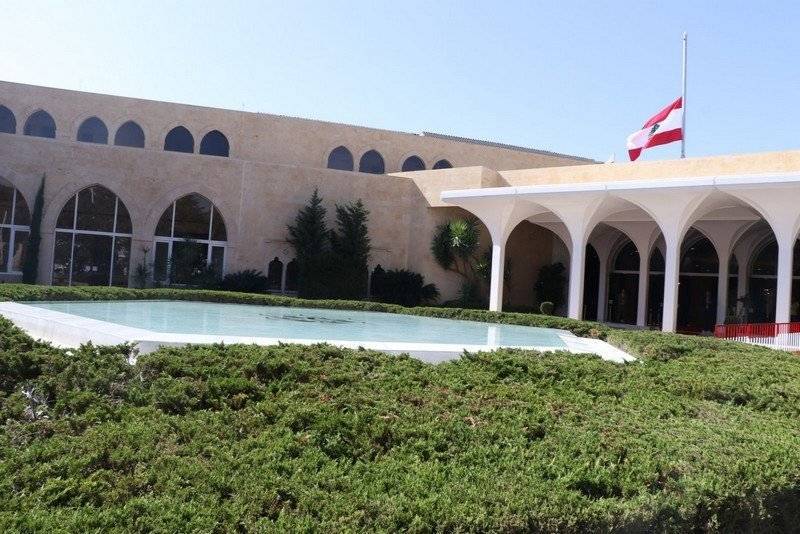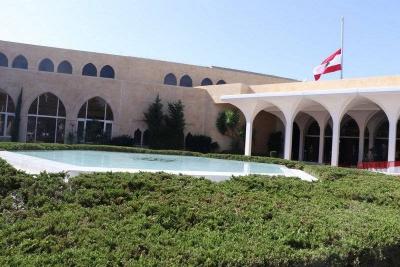Informed political sources indicated to "Al-Liwaa" that it is likely that a call for binding parliamentary consultations will be made next week, allowing for a series of communications that take into account the blocs' studies of their decision regarding the designation of the tasked individual. The sources clarified that current positions suggest either that the caretaker government will be prolonged or that the designation will be achieved with a limited number of votes, and if it occurs, who can ensure rapid formation.
The sources confirmed that efforts from Hezbollah, the Free Patriotic Movement, and Amal Movement will focus on utilizing the outcomes of last Tuesday’s session for the government entitlement, and from here discussions will begin with several independent MPs to arrange the position. Meetings for blocs are expected to be held either to discuss the session for electing committees or to clarify a stance on naming a personality to preside over the government.
Political sources are awaiting the results of the binding parliamentary consultations that President Michel Aoun is expected to conduct starting early next week to appoint a new Prime Minister. The name of the individual who will receive the most votes to be tasked with forming the new government is still awaited, although Najib Mikati's name currently leads the pack, as he does not provoke any political party and has preliminary support from President Nabih Berri and other parties. His government has initiated files that require follow-up, such as negotiations with the International Monetary Fund to reach its ultimate goal of signing the required agreement to secure the necessary assistance for Lebanon to begin resolving the pressing financial and economic crisis.
However, it is not possible to preempt the binding consultations or to definitively determine who will receive the designation, pending the results of ongoing discussions and communications within every bloc and political coalition, regardless of size, to know who will ultimately be chosen. Meanwhile, information has begun to leak suggesting that the change forces will not support Mikati for the new premiership and are considering one of two options: either to name their own Prime Minister, who will not be part of the ruling group, or to abstain entirely from naming anyone.
Additionally, it has been reported that the head of the Free Patriotic Movement, MP Gebran Bassil, has informed close associates that he will not support Mikati for the premiership, as he did not cooperate with him during his tenure. Bassil seeks to nominate a new Prime Minister who can engage more easily and respond to his demands regarding appointments, electricity, and other matters. Given that the anticipated government is the last of the Aounian mandate, there will be no possibility of leniency in naming its president or participating in its core structure. This implies that there is another candidate personally associated with Bassil, and the near-consensus around nominating Mikati is no longer valid. Thus, the situation will not be clear until the blocs and parties announce their presidential candidates.
In light of the current political reality and the preliminary positions of the parties, it can be initially perceived that there is significant difficulty in forming the forthcoming government, and it is likely that matters will move towards obstruction by Bassil as usual, along with Hezbollah, while the change deputies and their allies will not be compliant, as anticipated by the political milieu.
If President Nabih Berri is focused on the elections for the heads and members of parliamentary committees next Tuesday, in the session he has called, some close parliamentary sources believe that consensus is the shortest way to restore parliamentary unity regarding the affirmation of committee heads, such as the Committee of Administration and Justice to MP Adwan, the Finance and Budget to MP Ibrahim Kanaan, and Foreign Affairs to a deputy chosen by President Berri, succeeding former MP Yassin Jaber. The same applies to communications, with the expectation that change deputies will have a share in the committees and their rapporteurs, in light of consultations whose results are still unclear, and which are related to what emerged from the previous session last Tuesday to elect Berri and the legislative kitchen.
It was reported that the presidency awaits the final distribution of parliamentary blocs from the parliamentary circles which have not yet completed their work, in order to direct President Michel Aoun accordingly to call for binding parliamentary consultations to choose the new Prime Minister. Consequently, it is presumed that the blocs and political forces will begin next week to explore their options for appointing a Prime Minister, entering the most delicate and dangerous phase of government formation consultations, which logically should not involve disputes given its short lifespan, unless there are hidden political intentions underlying plans to prolong the caretaker government's duration until the presidential entitlement at the end of October.
Information sources indicated to "Al-Liwaa" that President Aoun will call for binding parliamentary consultations at the earliest opportunity, but will wait for the council to complete its task of electing parliamentary committees in the session next Tuesday. The president has begun contact with some forces to gauge their response regarding the appointment of the new Prime Minister, with no clear positions emerging yet in this regard.




